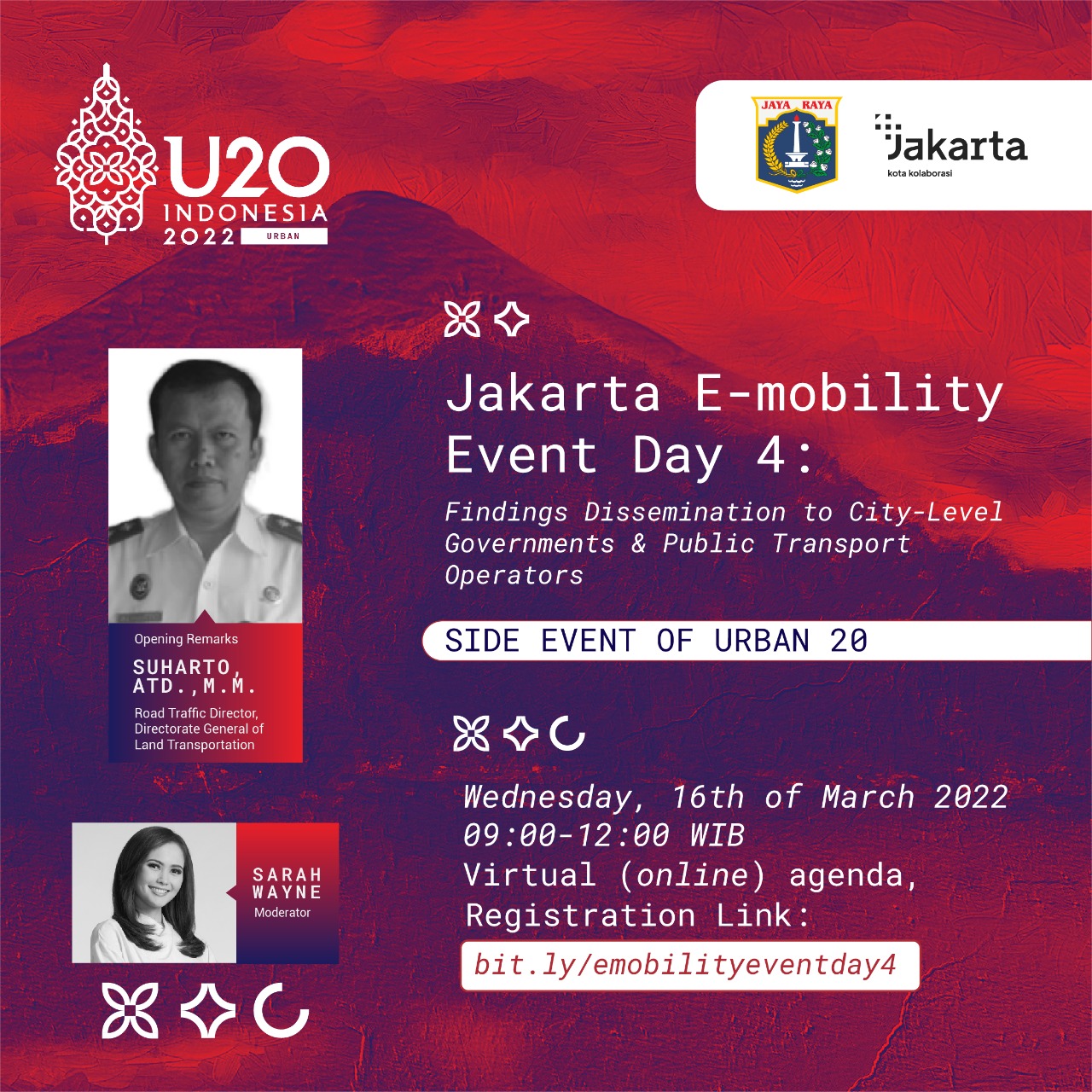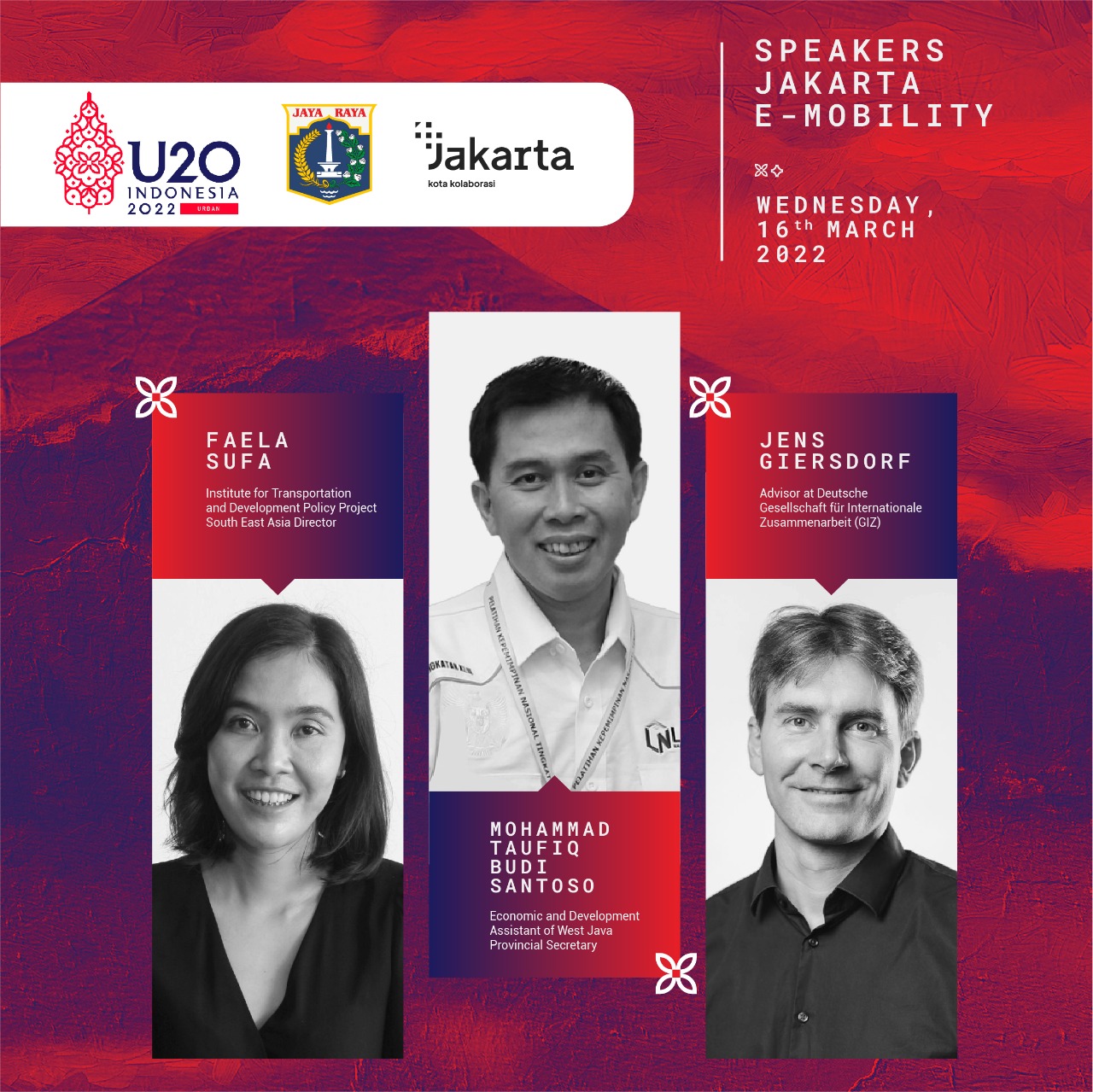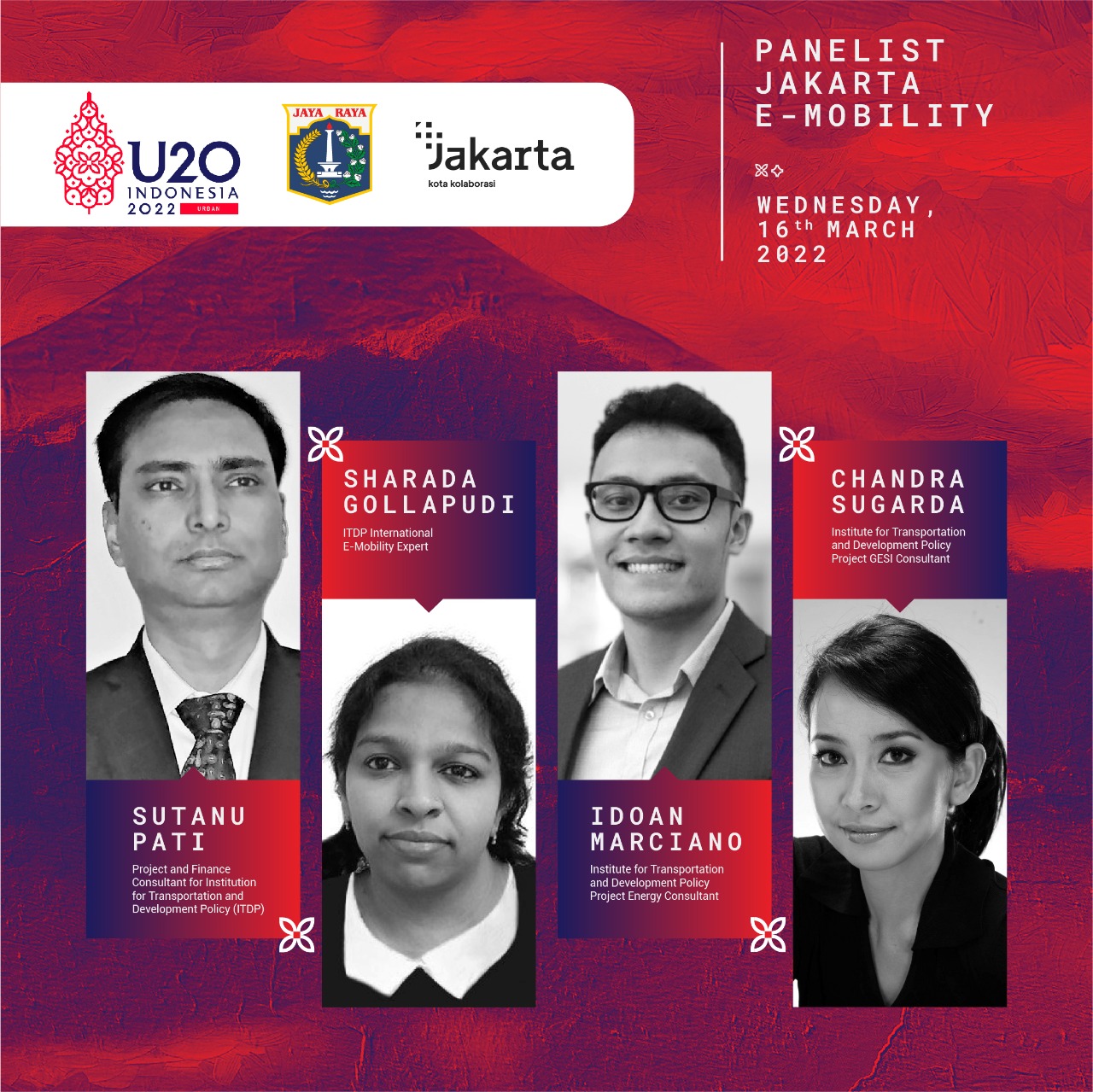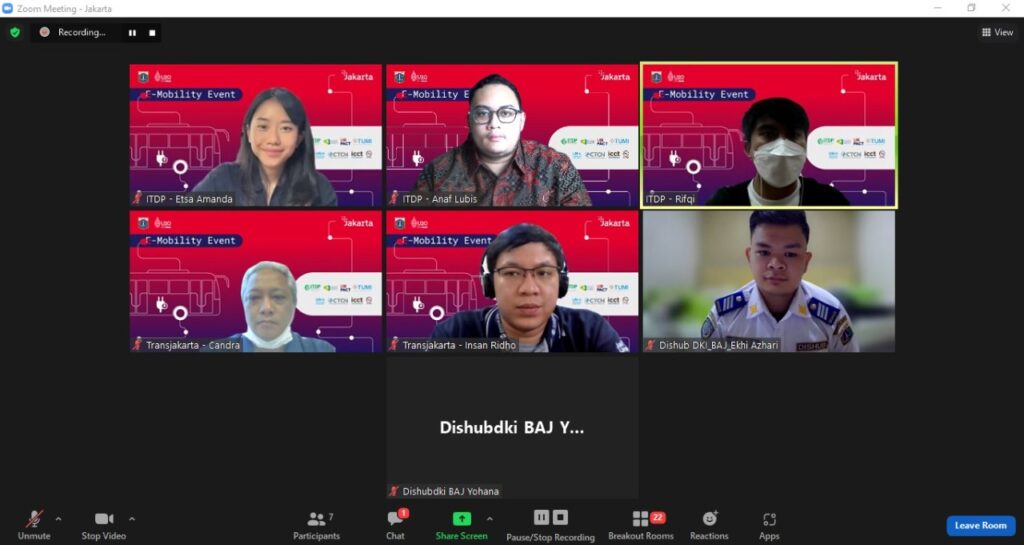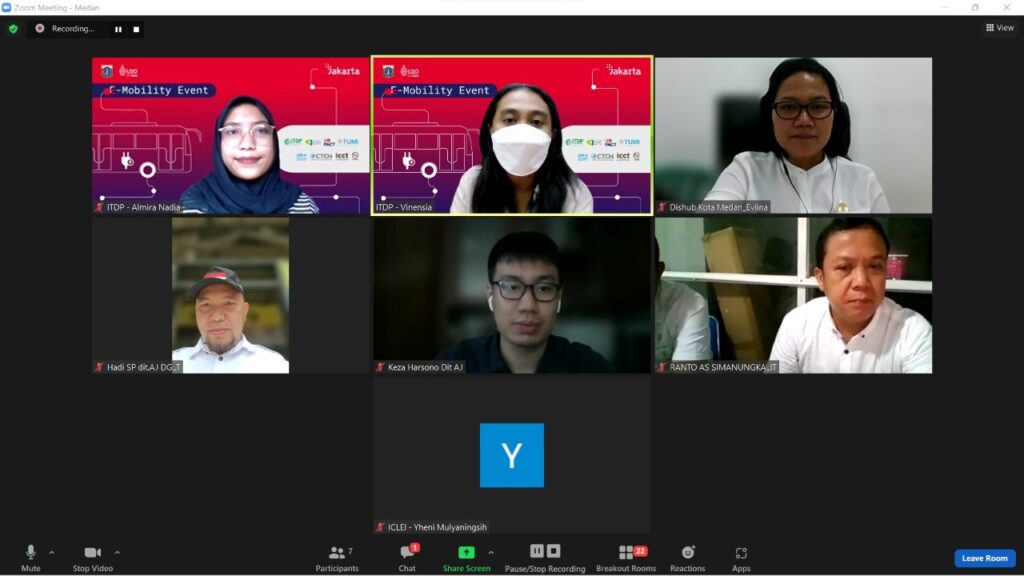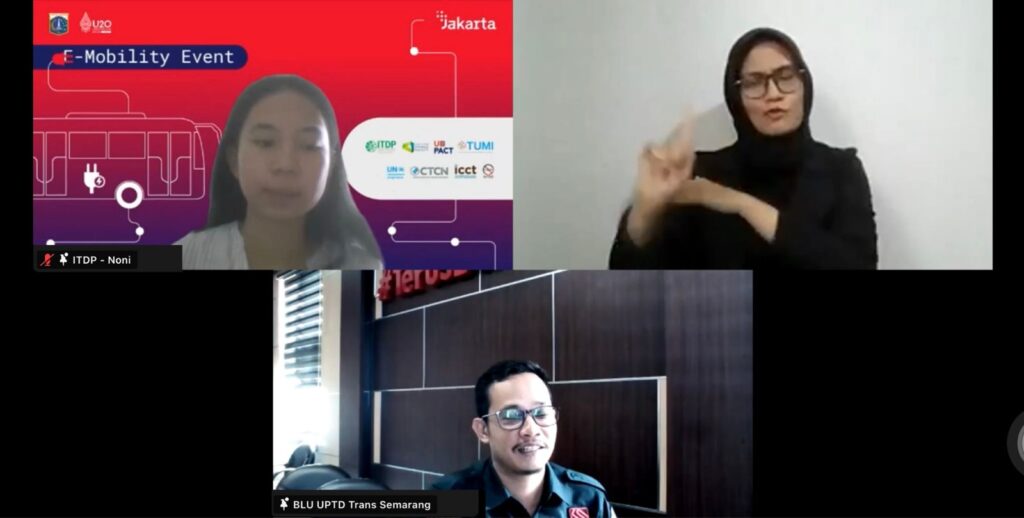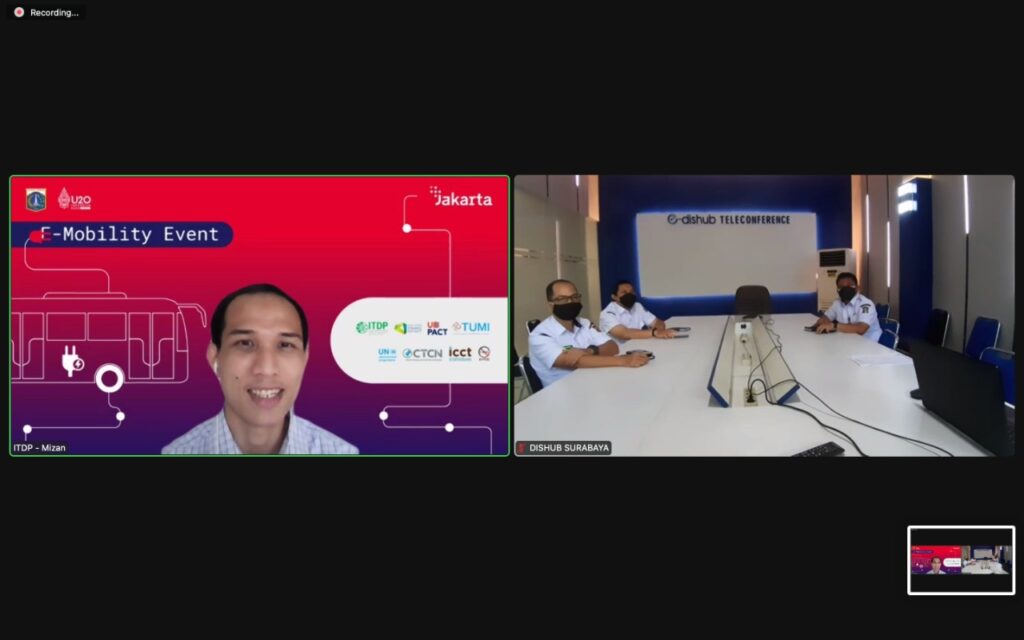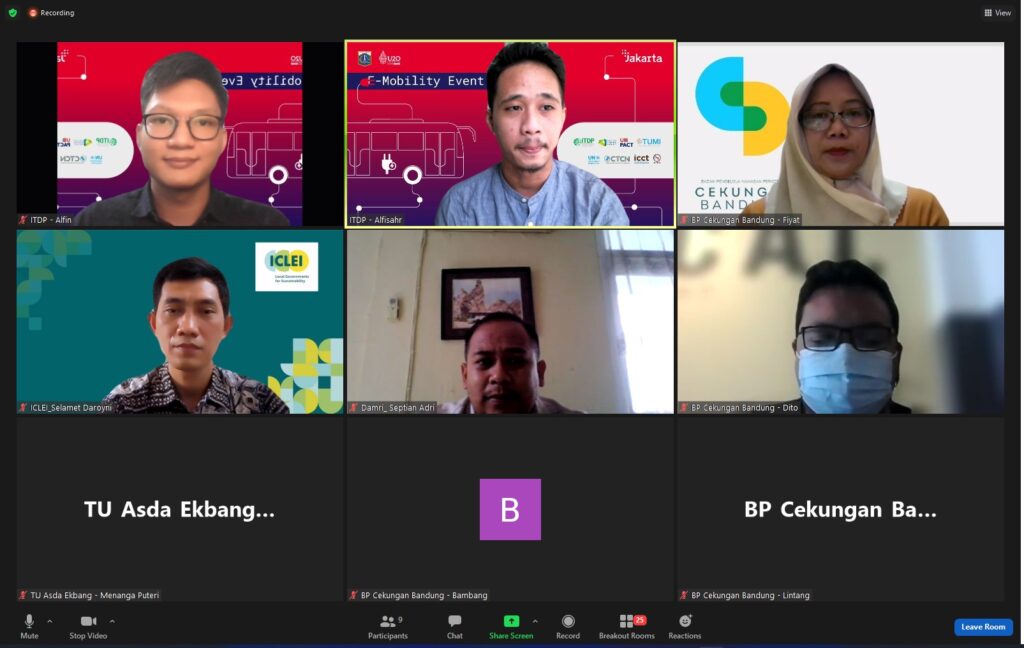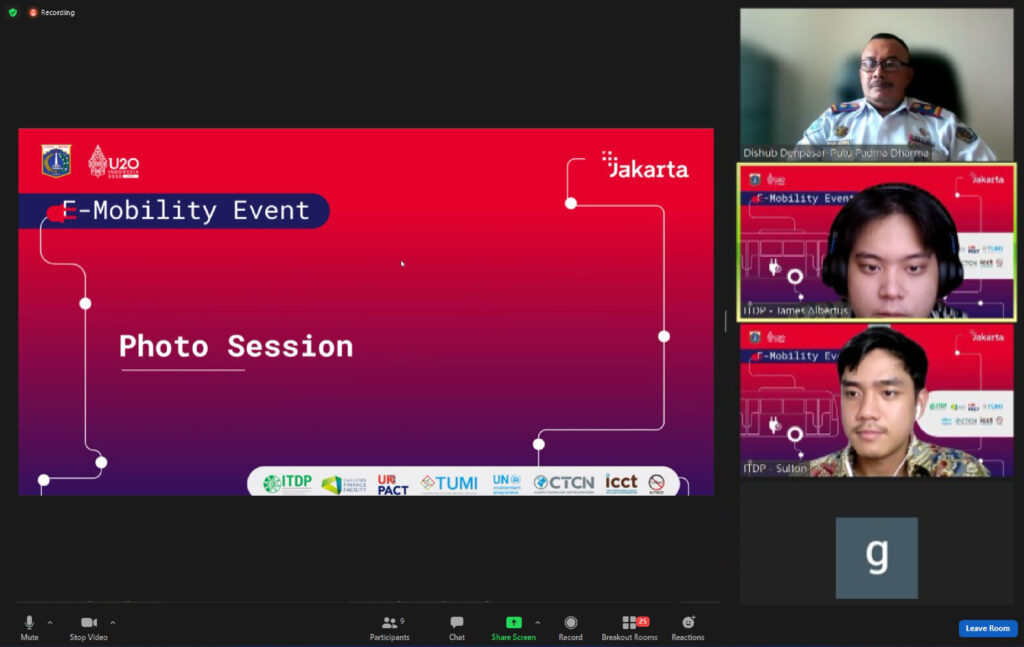The last workshop of the Jakarta E-mobility Event was held today, with the agenda of disseminating findings on Transjakarta’s e-bus recommendation and toolkit for e-buses adoption in Indonesian cities. 6 cities (Jakarta, Medan, Bandung, Semarang, Surabaya, Denpasar) were invited to join a peer-to-peer discussion on the city-level feasibility of bus electrification.
The event was opened by Mr. Suharto, Director of Road Transport, Directorate General of Land Transportation, Ministry of the Transportation Republic of Indonesia, where he stated the government is developing a policy on the transition to electric road-based public transport and cited the 10 new tourism areas (KSPN) where electric public transport systems will be implemented, such as Toba Lake (North Sumatera), Bromo-Tengger-Semeru (East Java), Borobudur (Central Java), Wakatobi (Southeast Sulawesi), Lombok (West Nusa Tenggara), Tanjung Kelayang (Bangka-Belitung), Labuan Bajo (East Nusa Tenggara), Morotai (North Maluku), and Manado-Likupang-Bitung (North Sulawesi).
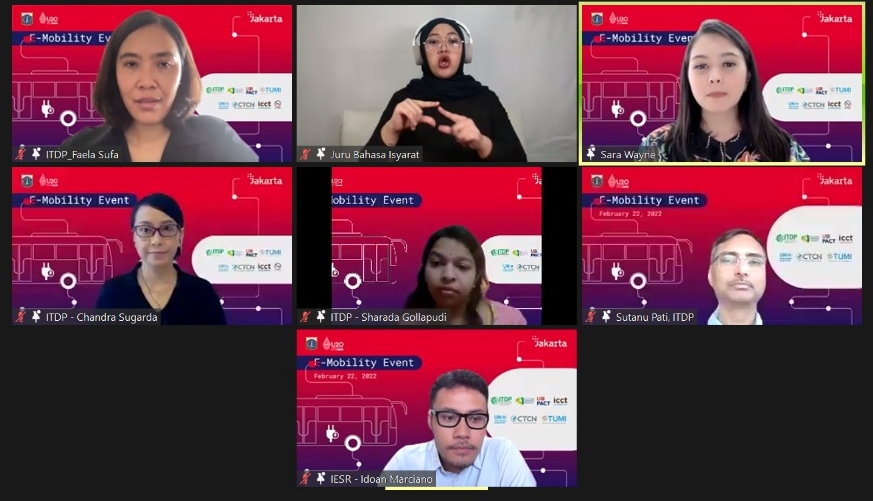
Faela Sufa, ITDP Southeast Asia Director, presented the recommendations for Transjakarta regarding the microbus electrification plan which will start this year to 2030, divided into 5 stages. Based on the study, there is an excess supply capacity of 7,510 MW (54% of the total supply power ability) and shows that Transjakarta microbus electrification will only take a 0,99% of available margin, so it does not cause a shortage of electricity supply.
Fiyat, BP Cekungan Bandung, shared their 18 corridors BRT plan and the plan to adopt electric buses to some portion of the upcoming BRT system. He also mentioned that West Java has been granted electric buses from Chung Nam Province of South Korea and The Ministry of Transport, which will be managed by a regional-owned enterprise.
Jens Giersdorf, Head of TUMI E-bus Mission, introduced TUMI E-bus Mission program which has the main goal to assist in ensuring 100,000 e-buses “ready for procurement” by 2025 globally. In Jakarta, this program supports the monitoring and evaluation of the 100 pilot e-buses deployed by TransJakarta.
During the peer-to-peer discussion sessions, city representatives discussed their challenges on financing e-bus fleets procurement, operational costs, and infrastructure provision. It was voiced unanimously that local governments will need the national government’s support on the financing, procuring, and planning of the technical aspects of e-bus implementation through capacity building and strong supporting policies
As a follow-up of this event, ITDP Indonesia will soon release an e-bus planning toolkit that will explain the urgency of the transition to e-buses, planning framework, policy recommendations, overview of e-bus and charging models, as well as guidelines to measure the impact of e-bus deployment, ensuring the inclusivity of the transition, and mitigating the risks associated with the new initiatives.
Speakers and Panelists presentation are available here.

